Eco-Challenge Fiji 06 - Highway to the Danger Zone
Eco-Challenge Fiji:
World’s Toughest Race
Tuesday September 10th - Thursday September 12th
Spoilers: None
Team US Military’s Camakau had been expertly patched and was good to go! There were still some tiny holes that were missed, but the members who were some hours ago concerned about sinking in the Pacific Ocean were grateful to know they would make it through this part of the race.
They set off for the next CP—skin diving for the Ocean Stage medallion back near CP1. The Eco-Challenge Fiji ocean leg team had been fairly vocal cautioning teams against hitting reefs at low tide—colliding with a reef would not only damage the reef but could put a hole in the boat and end a team’s race. Now paranoid about damaging their sailboat again, Team US Military decided to play it safe and swung wide around a potential reef.
Coral reefs and Fijian Islands in the Pacific Ocean.
After a half hour of paddling, an Eco-Challenge ocean leg safety boat approached the team and the race staff member warned, “You are going the wrong way." Spangler told them that the team was avoiding a reef, but the staff member replied, “you guys are fine” and instructed an adjustment of course by thirty degrees.
Caitlin had two concerns coming into the race that both ended up being unfounded—one was that the ocean navigation would be so difficult that her team would end up sailing deep into the Pacific Ocean somewhere. As it turned out, the Eco-Challenge Fiji ocean leg team was not going to let that happen. In fact, later on in the race they instituted a dark zone from 6pm to 6am on the water because teams were getting lost at night. A dark zone is a portion of the course in which teams are not allowed to travel during times of darkness. Caitlin disagreed with this decision, thinking it should be a team call. Her thinking was “if you cannot navigate at night, then do not do it.” But the ruling was beyond her control.
Team US Military made a beeline for the skin diving challenge and caught up with a couple other teams. Spangler dove down twenty feet and grabbed the Ocean Stage medallion on the second try! In doing so, the team passed Team AR Georgia at the skin diving challenge—Katie Ferrington’s foot had been run over by another boat pulling up on shore and was receiving medical attention. After having stamped their passport, Team US Military was off to sail to the mainland—the last leg of the sailing.
As they made their way to the mainland, Jesse began to question whether the race’s difficulty was already beginning to take its toll on him when he began to see things in the Pacific waters. When he found the bravery to ask his teammates if they were seeing what he was--small green flickers beneath the water every time his paddle sunk in--he realized he was not yet hallucinating.
As they made their way to the mainland, Jesse began to question whether the race’s difficulty was already beginning to take its toll on him when he began to see things in the Pacific waters. When he found the bravery to ask his teammates if they were seeing what he was--small green flickers beneath the water every time his paddle sunk in--he realized he was not yet hallucinating. With each paddle stroke, the ocean was exploding with lime bluish-green sparkles. Bioluminescent plankton were illuminating themselves due to the mechanical stress of the water around them being disturbed by the paddles. Chased by a stream of natural fireworks , the team glided across the Pacific Ocean atop their Camakau. It would be an unforgettable experience for the members of Team US Military.
A light, favorable wind allowed the team a brief opportunity to finally sail the Camikau. During it, they witnessed the most gorgeous sunrise they had ever seen. It was beautiful and lifted their spirits as they reached the mainland and readied for the standup paddleboard (SUP) leg.
As Team US Military got to the SUP CP, Team Bend Racing was there getting ready to head out after having used a three hour sleep card. Rather than fight low tide, the Oregonian team had decided to use a sleep card instead.
Not all trails are ridable. Team 59 seen here pushing their bikes across a rocky river.
Team US Military set about blowing up their SUPs and readied for the standup paddle on the river. Team AR Georgia came in about thirty minutes afterward. As Team AR Georgia member Hunter Leininger was the youngest competitor on the course, his team had almost constant camera coverage. So of course commence smack talking between Joshua and Hunter’s father Jeff Leininger for the world to witness. Team US Military set out on the SUP with renewed energy. They had survived day one and were on to day two.
As the team started out, Caitlin noticed Joshua lagging behind, basically flailing about like a fish out of water. “Joshua, how many times have you been out on a SUP?" His reply was, “Once." To Caitlin, that much was already obvious. After a short tutorial, Joshua proved to be a quick learner and the team was on its way. They passed a team who got stuck on a sandbar, as the tide was still fairly low. As they made headway up the river, the entire team, including its newly indoctrinated SUPer, proved to be fairly adept SUPers and passed a couple more teams as they continued to move up the field.
Further upriver, some Fijians were selling coconuts on the side of the river beside a bridge. The guys stopped and bought a couple, which turned out to be the best coconuts along the entire course.
As the team started out, Caitlin noticed Joshua lagging behind, basically flailing about like a fish out of water. “Joshua, how many times have you been out on a SUP?" His reply was, “Once." To Caitlin, that much was already obvious.
In good spirits, Joshua started singing “Highway to the Danger Zone" as he was paddling further up. While singing, he misplaced his paddle and clipped his board—down he went flopping into the water. Just prior to that a drone had shown up and was filming from above. As soon as Joshua hit the water, the drone made a beeline for him to get a closeup. Caitlin was laughing so hard she could hardly contain herself. Joshua came up sputtering like a drowned rat and hauled himself up awkwardly onto the paddleboard as the drone captured the entire incident. He was a little off his game after that incident and fell again a few minutes later. It was a comedy of errors.
Team US Military made a final hard push into the next CP, passing three to four more teams, including Team Flying J and Team Teenek Mexico along the final stretch. The military team pulled up into the SUP takeout in about 40th place. They were on a roll, and it seemed like the wind was at their backs. Perhaps it was, and along with it--an incoming storm. As their crew was getting off the water, it started to rain. Like torrential downpour rain.
Team US Military had to transition to the bikes and now would be building their bikes in the rain. The bikes were set up in the middle of a village, and some of the team members found partial shelter under a rudimentary tin roof to put their bikes together. Wet and cold, they put the bikes together as quickly as possible.
There was a small river that the team needed to use a cable ferry to cross—village boys were manning the crossing for teams in the pouring rain. The rain seemed to be no big deal for the kids—they ran around in it like it did not bother them at all. After crossing the river on the cable ferry, Team US Military set off on the bikes mid-afternoon, happy not to be paddling.
One thing everyone should know about Fiji is that flat land does not exist. Fiji is extremely hilly, and teams experienced this terrain every time they got on their bikes. The bike leg was very hilly, but an enjoyable course for the team. It was mostly on dirt roads.
Team Atenah Brasil climbs a gravel hill on their mountain bikes.
As night fell Team US Military encountered a [relatively] short section of single track mountain biking trails. However, it was so muddy that it was unrideable. The team resorted to putting their bikes on their backs and carrying them up the muddy hills. Going downhill was a similar story--they were basically slipping down huge mudslides. After a particularly muddy downhill slide, the team encountered a small stream. Caitlin was covered in so much mud she just laid in the river and did some “snow angels” to wash off.
After getting through the single track, Team US Military biked past a village with hundreds of people out cheering them on. There were a few cell phones recording the passing, music playing and singing all the while, and shouts of “Bula! Bula! Bula!” on both sides of the road as they flew past them. The team made their way in great time to the CP just before Camp 1. It was 1900 on day two when they arrived at the CP.
However, upon arrival, Team US Military was notified that the course had been closed until the next morning. This took the team completely by surprise—they had not anticipated a stop before arriving at Camp 1. Eco-Challenge race management said it was due to rain and conditions on the canyoneering leg, but some members of the team were skeptical. Caitlin wondered, “It had stopped raining, so why was the course closed for an additional twelve hours?” The team would later find out after the race that the stoppage was actually because the slot canyons were flooding and impassable from the prior rain’s runoff, which was causing flash floods within the narrow canyon’s walls.
They were on a roll, and it seemed like the wind was at their backs. Perhaps it was, and along with it--an incoming storm. As their crew was getting off the water, it started to rain. Like torrential downpour rain.
Meanwhile, the members of Team US Military discussed amongst themselves what to do. They were cold and wet and facing a night at a very wet camp along the river. Caitlin wanted to stay at camp. Jesse and Spangler were dead set on finding a farmers house to stay in. Joshua was on the fence. Jesse found someone to ask the farmer on neighboring hilltop if he would take the stranded racers in. The farmer agreed, so they left their bikes at camp and trudged up the hill to his house. The team was able to shower off and make some hot water for some ramen. Joshua and Jesse laid down to rest.
As they were laying down, Caitlin looked out of the door to see what was going on at the CP. Looking down, she saw teams crossing the river and continuing on the course! With a “WTH??!!”, Caitlin ran down the hill to find out what was going on. As it were, so many teams had complained about being wet and cold that they were allowing the teams at this CP to continue on for a couple hours to Camp 1.
Caitlin ran back up the hill to relay the news. The guys quickly scrambled to get their stuff together so that they could go. Off they went after taking a quick selfie with their host. At this point Caitlin was pissed, having never wanted to leave the CP, but the only thing to do was move on.
The team rode into Camp 1 and ended up getting about four hours of sleep until their 0800 start on day three.
Bear Grylls shares the race stoppage news with TAC Kevin Howser
When they arrived, they learned that Canadian Team Atlas really got screwed with the course stoppage—the Canadians had been at Camp 1 since noon the previous day, took a three hour sleep card, and were planning on leaving late that afternoon when Eco-Challenge race management stopped the course. Team Atlas ended up spending eighteen hours at Camp 1. While they had used more sleep cards, many teams were able to make up a considerable amount of time on them. Sucked for them, but nothing to be done except to continue on and roll with the punches.
When the Eco-Challenge Fiji race management team restarted the race the next day, they started teams in three different waves, each one and a half hours apart depending on the time teams rolled into camp. Team US Military was in the second wave and ended up starting with some very good teams. Each team was granted two sleep card usages due to the course stoppage, and the race continued on.
Caitlin Thorn is a guest blogger here. Caitlin Thorn is an accomplished endurance athlete, with numerous accolades as a distance runner, Olympic and half-Ironman distance triathlete, and adventure racer. Caitlin is a Track and Field Division I NCAA All-American, with numerous finishes in the half-marathon and marathon distances. She has been adventure racing for three years and has earned podium finishes at over 6 races and qualified for the 2019 USARA National Championship. Caitlin enjoys world travel and hiking, and when not pursuing outdoor adventure she serves as an active duty officer and engineer in the U.S. Air Force.
Caitlin can be followed via Facebook @caitlin.aub

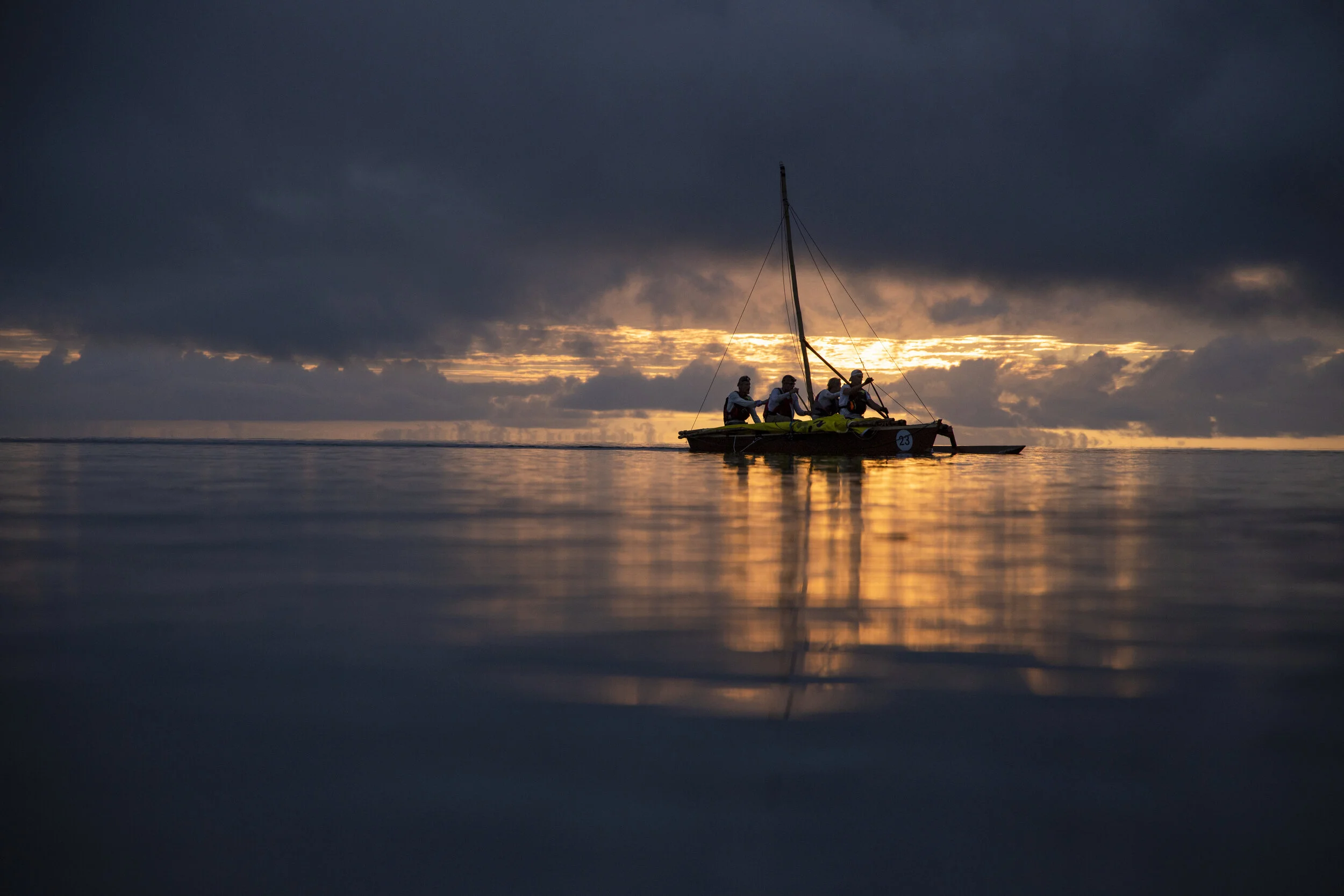





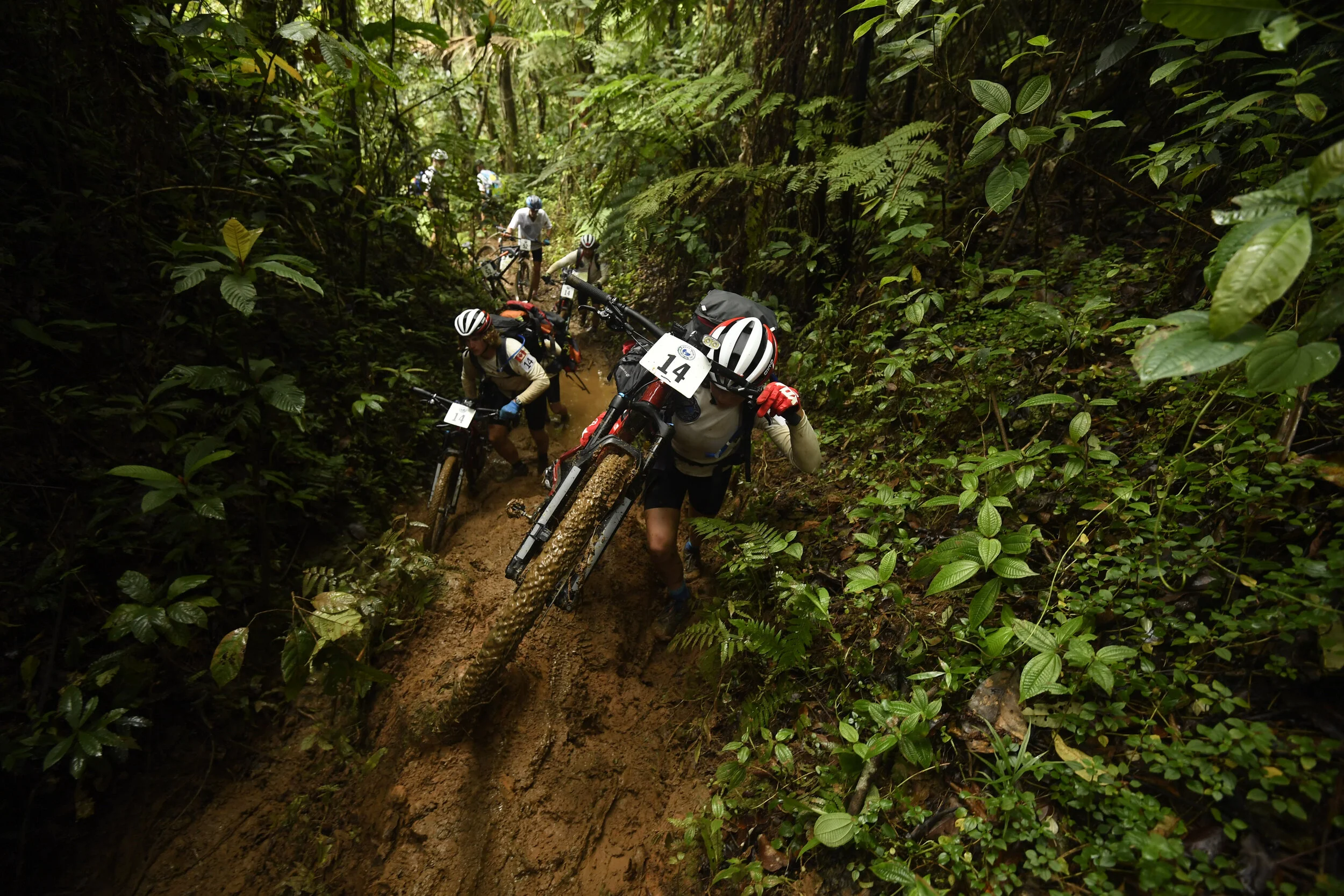



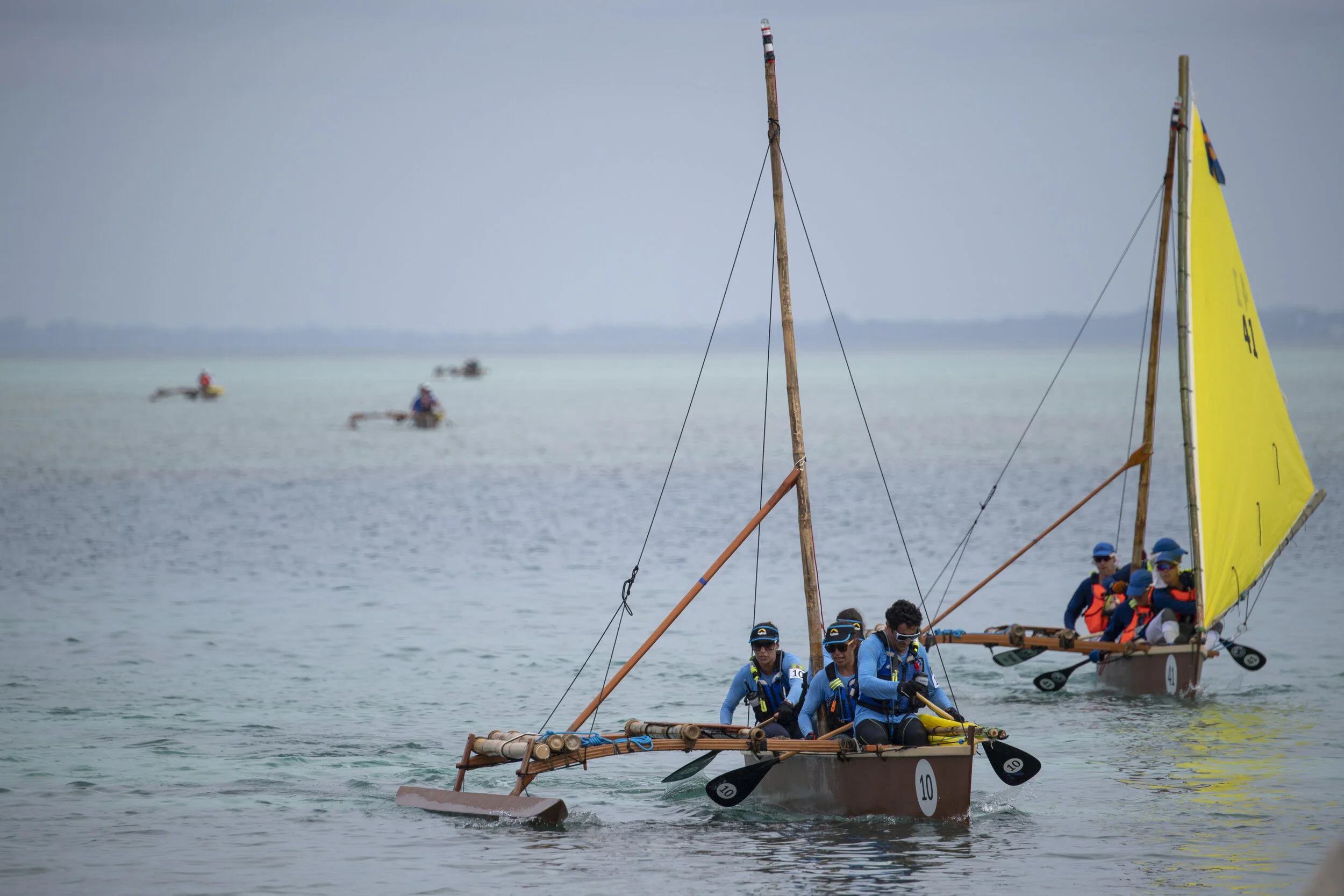
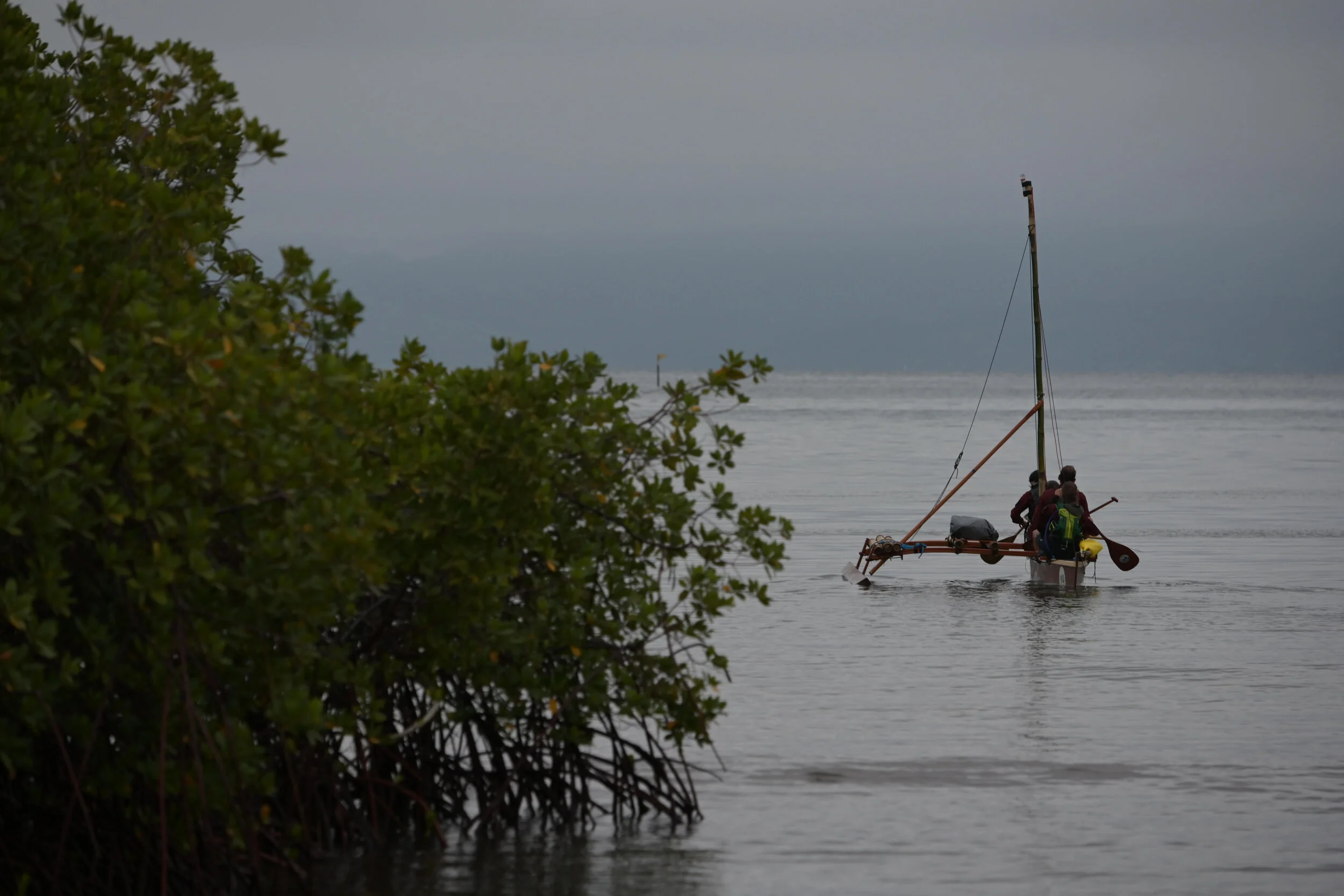
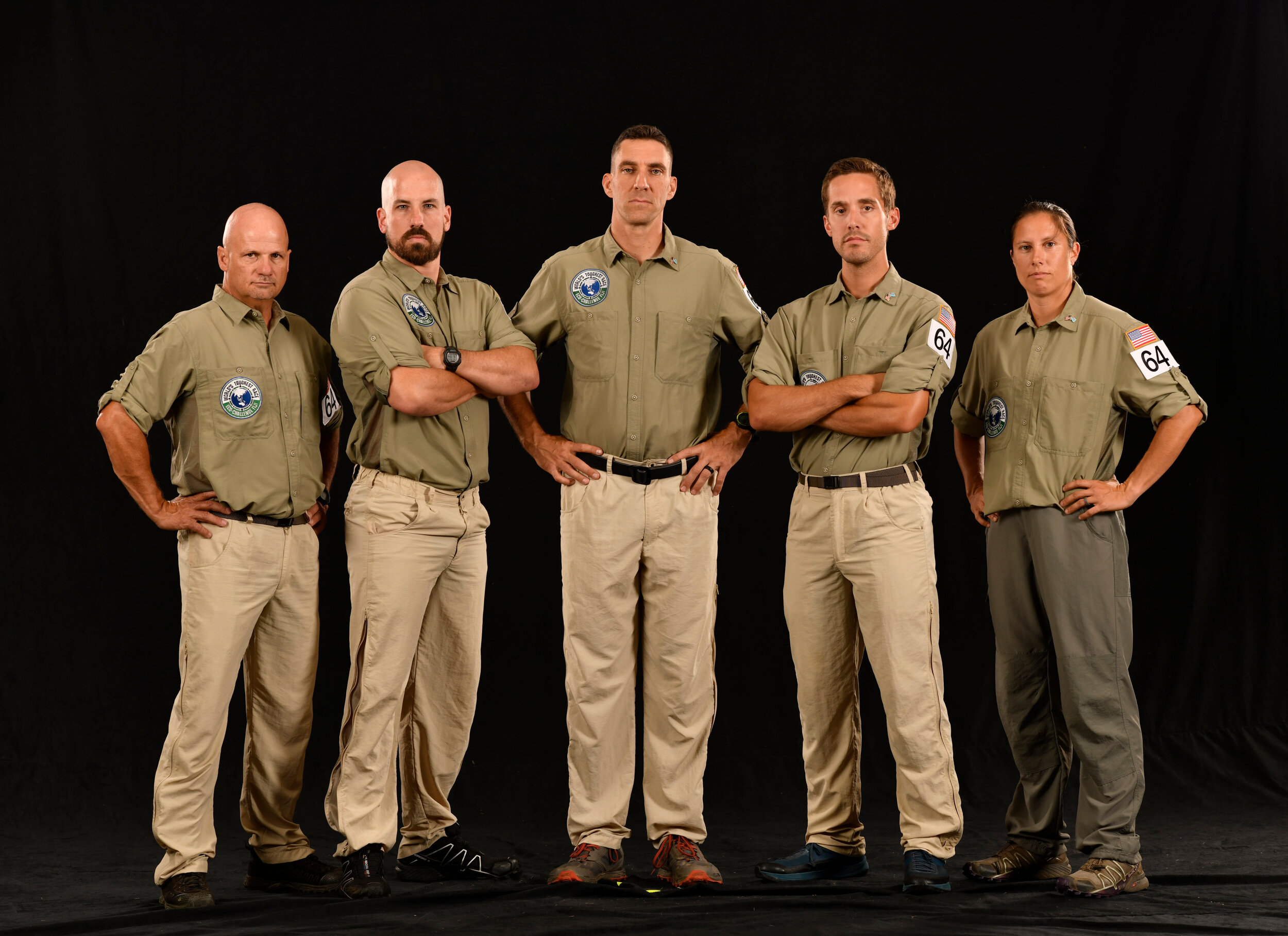

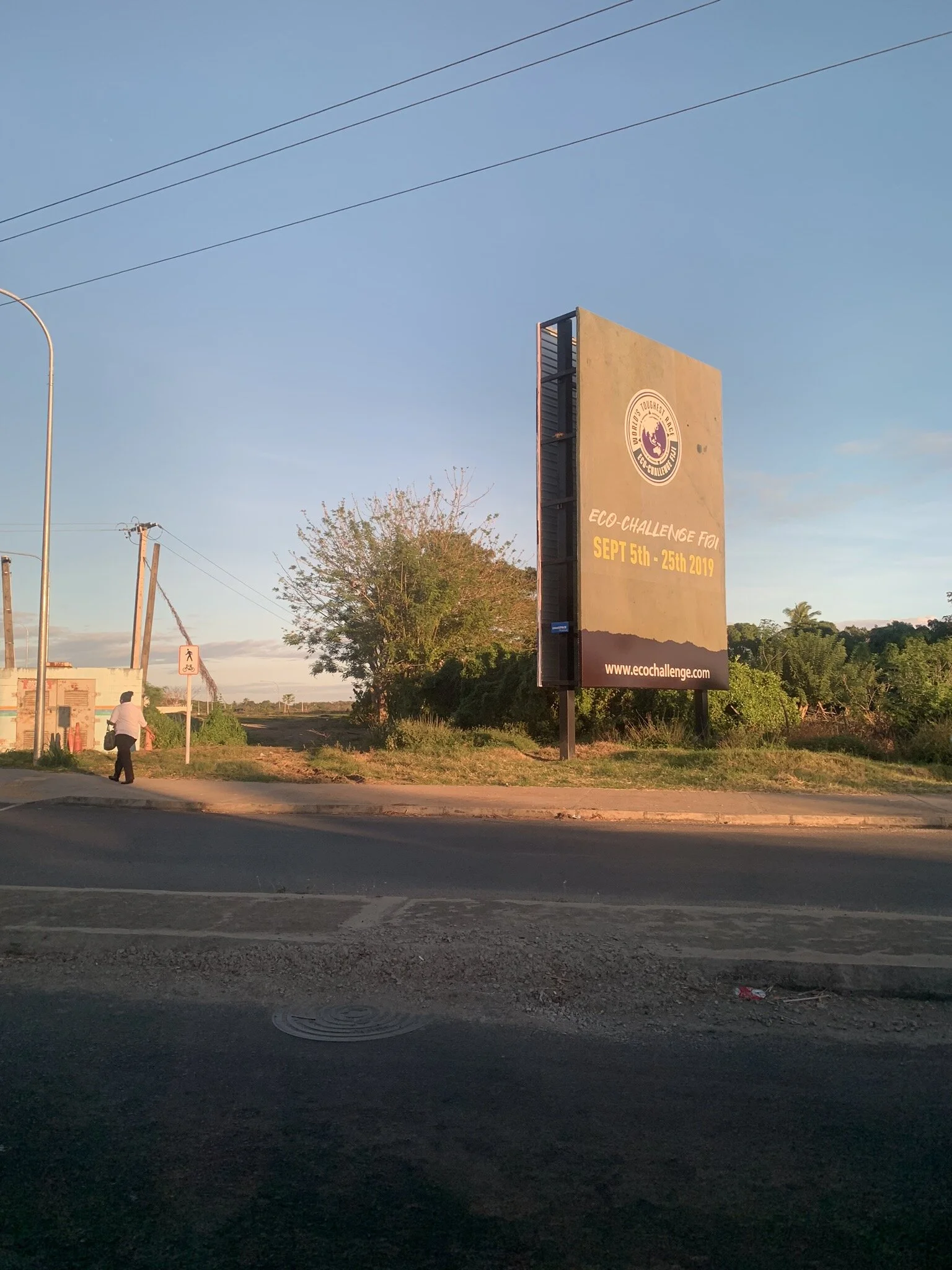
Eco-Challenge Fiji never promised to be an adventure race. Its claim was “The World’s Toughest Race”. Despite the lack of navigational challenges and jungle whacking (which was anticipated to be the hardest part of the race), Eco-Challenge Fiji was still the hardest race the members of Team US Military had ever done. The biking was tough, with incredible elevation gains and losses, and the weather added to the suck factor. This course tested the limits of racers’ mental capacity and their will to finish. Traveling across and along rocky rivers was tedious and broke some of the hardest people down. Continually slipping on rocks and banging up shins and feet tested the bounds of human fortitude and willpower.